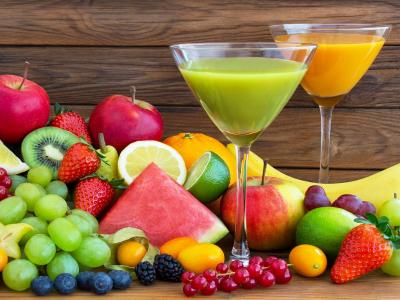Health Alert: Mixed Fruit Juice Side Effects Linked to Potential Blood Sugar Spikes
By Lokmat English Desk | Updated: July 9, 2024 15:17 IST2024-07-09T15:10:48+5:302024-07-09T15:17:18+5:30

Eating fruits is widely recognized as highly nutritious and beneficial for overall health, offering protection against numerous diseases. Rich in vitamins, minerals, carbohydrates, and antioxidants, fruits contribute significantly to maintaining good health

These days, the popularity of fruit juices has surged, with many preferring to drink juices rather than consuming whole fruits. Mixed fruit juices, combining various fruits into one blend, are particularly favored for their perceived combined health benefits. As a result, the demand for mixed fruit juices has seen a notable rise.

While fruit juice is often touted for its health benefits, the truth is that the process of juicing can lead to the loss of many essential nutrients. Fiber and other micronutrients are particularly affected during extraction, diminishing the overall nutritional value compared to consuming whole fruits.

Avoiding mixed fruit juice is advised due to its high fructose content, which can pose health risks. Nutritionists caution that mixed fruit juices are calorie-dense, contributing to potential weight gain and other health concerns.

A single cup of mixed fruit juice contains approximately 117 calories and is notably high in fructose, containing about 21 grams of sugar. Consuming such juices can potentially lead to health issues, including elevated blood sugar levels and associated health risks.

Mixed fruit juice poses significant risks for diabetic patients. Health experts highlight that during the juice extraction process, the fiber-rich portions of the fruits are discarded. This removal of fiber can exacerbate the impact of the juice on blood sugar levels, making it particularly unsuitable for individuals managing diabetes.

Once nutritious fruits are juiced, they lose much of their nutritional value, particularly the essential fiber needed for digestion. Without fiber, consuming juice can lead to digestive issues such as increased acidity, posing risks for individuals with gastric concerns.

After fiber is removed from juice, a significant amount of fructose remains, which can contribute to tooth decay. Moreover, the liver may struggle to process the concentrated sugars in juice, potentially leading to dehydration. The side effects of consuming mixed fruit juice can manifest within a few days, highlighting the importance of moderation and consideration of its impact on health.























